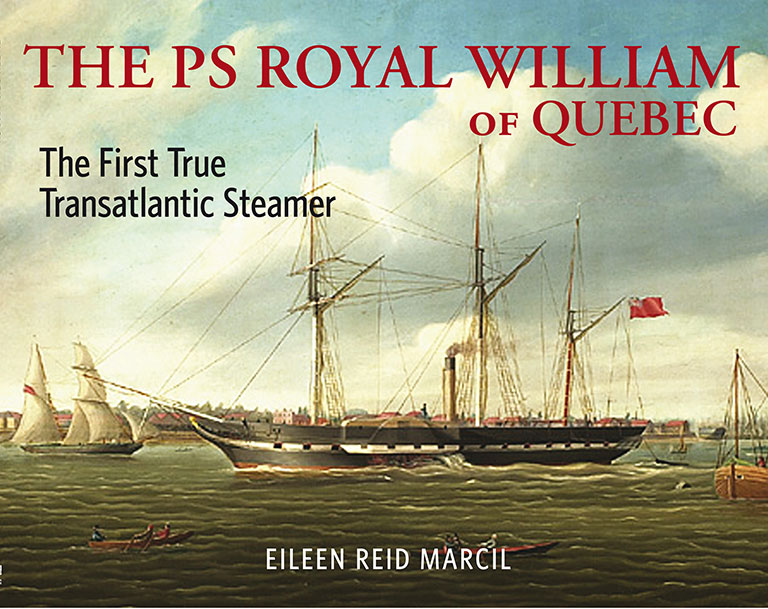The PS Royal William of Quebec

The PS Royal William of Quebec: The First True Transatlantic Steamer
by Eileen Reid Marcil
Baraka Books
133 pages, $29.95
In the nineteenth century, the way ships were powered underwent a fundamental change from sail to steam. In her latest book, author and maritime historian Eileen Reid Marcil notes that, as confidence grew in the new form of propulsion, “the Quebec Committee of Trade recommended that navigation by a steamboat be established between Quebec and Halifax.”
In 1828, the committee proposed that a cash sum be granted over three years to help to make this a reality, and it proceeded to establish the Quebec and Halifax Steam Navigation Company. A paddle steamer named the Royal William was designed and built according to company specifications at the Campbell and Black shipyard at the Port of Quebec.
The Royal William proved to be a reliable vessel, but it encountered a few problems during its Canadian tenure. A collision with a rock left the steamboat grounded in Montreal before it had completed its first run in 1831. On the ship’s next trip that year, it encountered severe fog and a hurricane with gale-force winds. After the following year brought a cholera epidemic, the Royal William was deemed unprofitable and sold at auction.
In 1833, the Royal William’s new owners decided to resell the ship outside of Canada. It left from Pictou, Nova Scotia, and steamed to Portsmouth, England — a journey that, according to Marcil, made it the first vessel to cross the Atlantic under steam power. While the operators of other vessels made claims to this achievement, Marcil provides evidence to show that the Royal William was indeed the first to do so, including in her book’s extensive appendix.
The information she presents about steamers and the people involved in their history is fascinating, while the many beautiful watercolours, photographs, and illustrations make her book a visual pleasure.
Themes associated with this article
Advertisement




